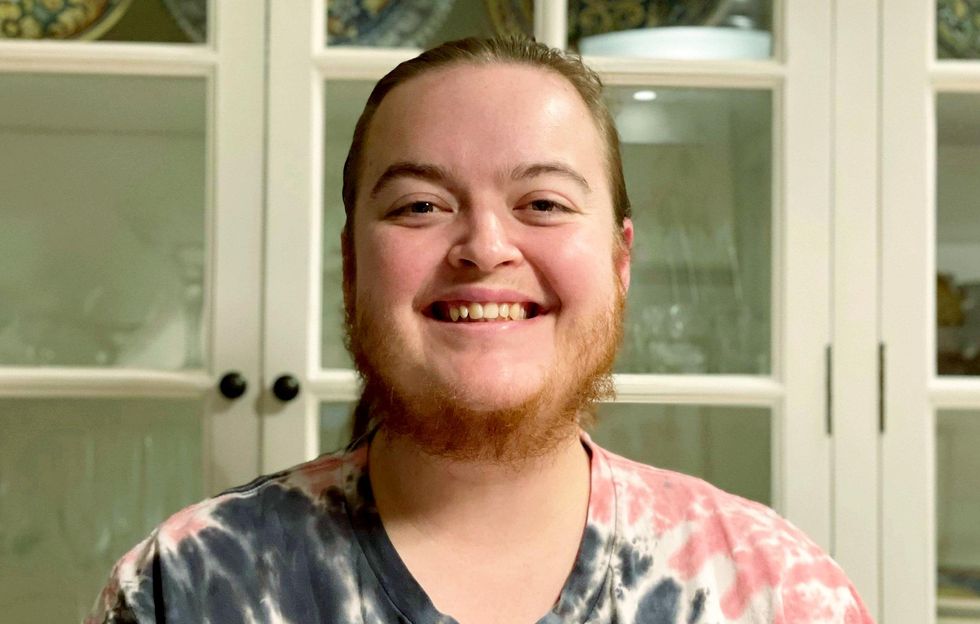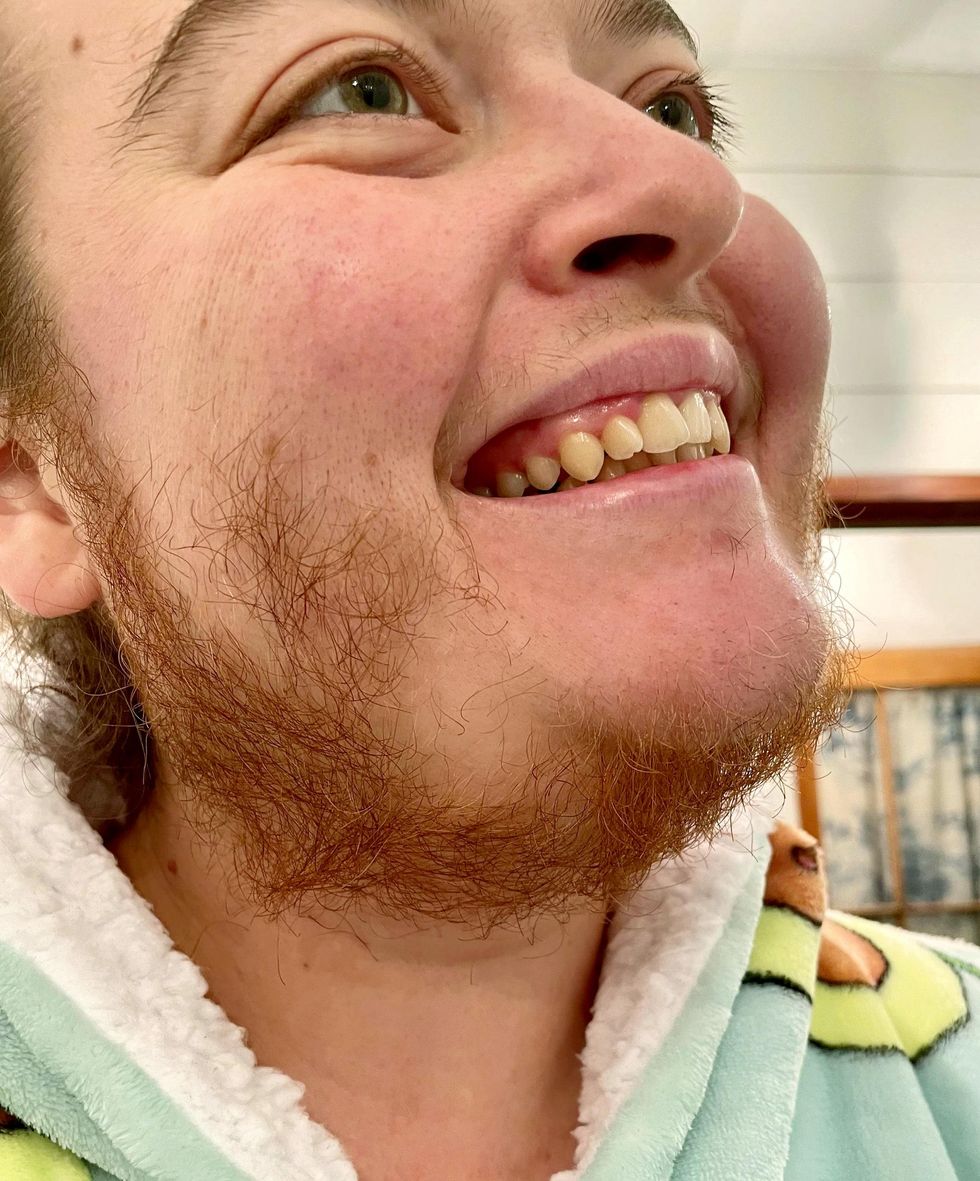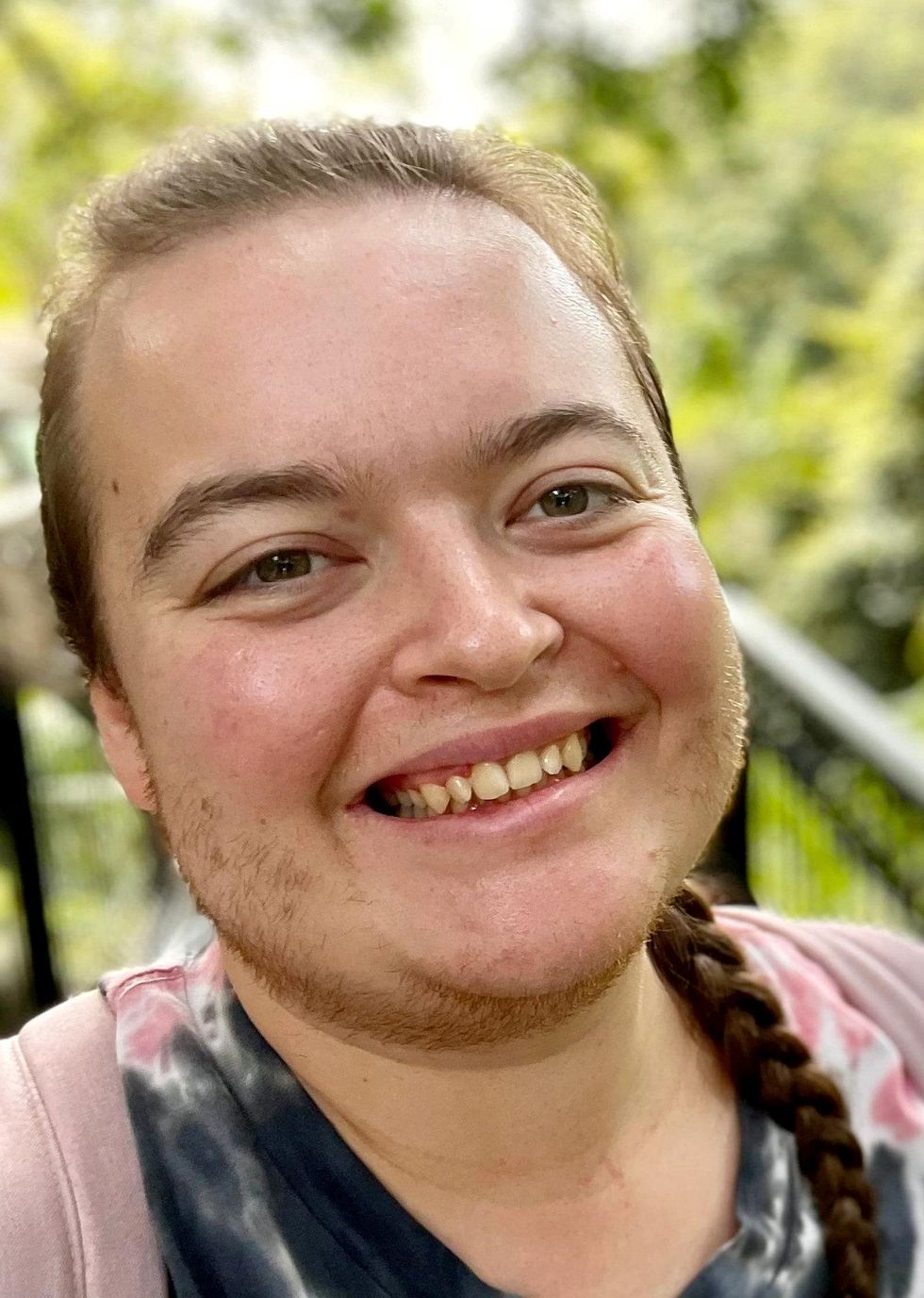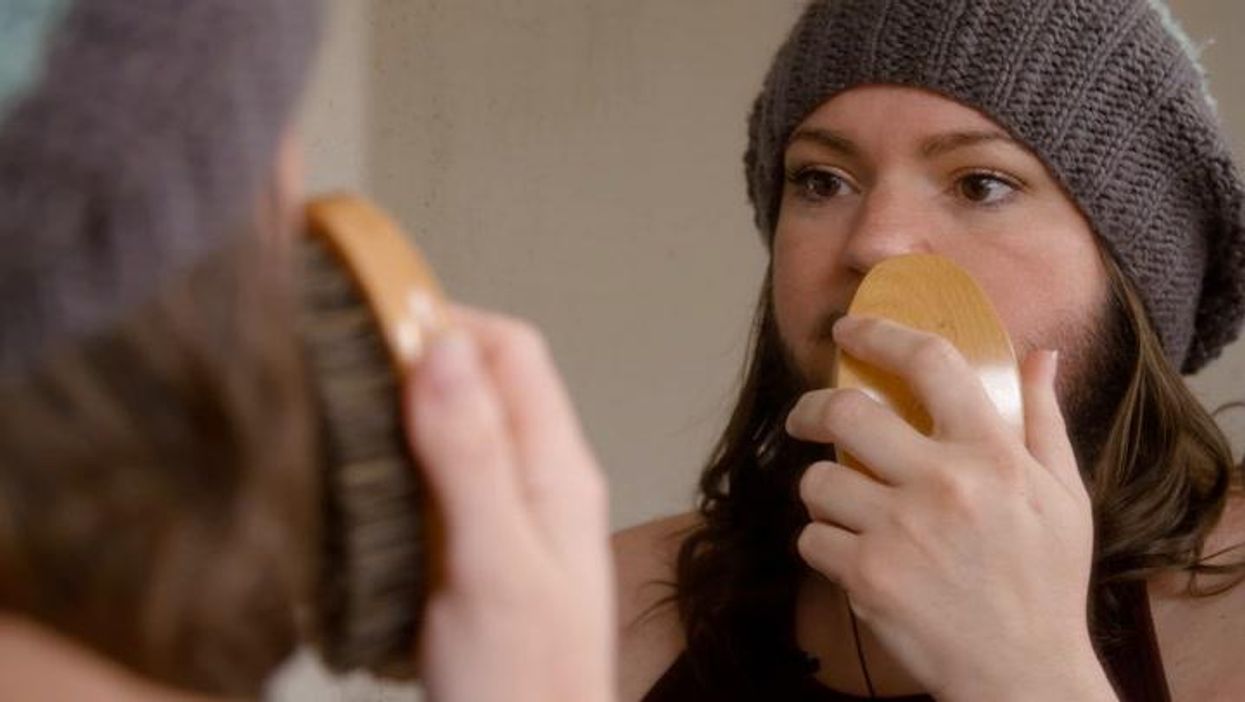A woman who has battled a hair growth condition for years has decided to ditch the razor - and embrace her ginger beard.
Morgan Coleman first noticed unusual hair on her cheeks, chin and neck when she was aged 11.
She desperately removed it throughout her teenage years to avoid comments from cruel bullies.
But now, aged 26, she's decided to stop feeling shame over her condition - known as hirsutism - and has stopped removing the hair.
She proudly wears a full ginger beard - and is encouraging others to do the same.
Morgan, who is currently unemployed due to ill health, said: "I struggled every day for 15 years with hirsutism, and after spending a lot of time in hospital recently, I decided it’s time. It's time to embrace my natural face and, surprisingly, people aren’t as judgmental as you’d think! Of course some people are, and they do say some awful things, but for the most part, more often than not, people are becoming more understanding.
Sign up to our new free Indy100 weekly newsletter
"I do struggle with self-confidence - after many years of bullying, it does have an impact on your self-confidence, but I am definitely feeling much more confident since I’ve decided to embrace my natural face. I am really at peace with it now. It’s difficult to explain, but I feel free - I wake up and that’s now the last thing I think about, it’s wonderful!"

Morgan, who now lives in Melbourne, Australia, first noticed thick hair growing on her cheeks, chin and neck while growing up on the Gold Coast.
She says was subjected to cruel taunts from classmates and used all the tools she could get her hands on to remove the unwanted facial hair.
Morgan said: "It was horrible and isolating. Both kids and young adults were very cruel.
"I was bullied severely for many years. I don’t have many fond memories from my school years. I used to get a lot of horrible comments from nasty people saying I was ugly, I’m a freak, I’m a man, I’m transgender.
"I used to get a lot of comments about my sideburns in particular - there was a stage that every second person that walked past me would comment on them, tell me to shave my face, laugh at me and make fun of me. It was particularly difficult at the time because I didn’t know why I was a bit different, I just knew I was different and that was hard because I couldn’t explain why.
"After a lot of bullying, I became very anxious and self conscious about it. I used a combination of waxing, plucking, hair remover creams and shaving, every day, 365 days a year."
Morgan underwent electrolysis in 2011 in a bid to remove the hair for good but found no success with her facial hair simply growing faster and thicker over time.
She claims doctors had previously dismissed her concerns until she started to experience menstrual issues and headed to her GP seeking help in 2019.
In 2020, Morgan had an ultrasound for cysts on her ovaries and was later sent to an endocrinologist for tests.
After years of hiding her facial hair, Morgan was finally diagnosed with hirsutism and Polycystic Ovary Syndrome in January 2021. Hirsutism is a condition whereby women have thick, dark hair on their face, neck, chest, stomach, lower back, buttocks or thighs.
PCOS is a condition that affects how the ovaries work with many sufferers experiencing irregular periods and facial hair and often struggle with falling pregnant.

She said: "I had been to doctors previously about the hirsutism and was told multiple times ‘some people just have more hair than others’.
"When I got back to Australia from the UK in mid-2019, I had a lot of menstrual issues so I went to my GP, and in 2020, I had an ultrasound for cysts on my ovaries, but at that time, I didn’t have enough to diagnose PCOS.
"It was then the end of 2020 that I went to another GP for a different health condition and she said ‘I think you have PCOS’.
"She referred me to an endocrinologist who did the appropriate tests and the results came back that showed I do indeed have PCOS as well as hirsutism. I was definitely relieved to have a diagnosis - an explanation as to why I am a bit different - but it was also scary being diagnosed with a medical condition."
In April 2022, Morgan headed off on holiday to WHERE but unfortunately fell ill after the flight and caught coronavirus at the same time.
She stayed in a local hospital for six days where she ended up reflecting on her current way of living and decided it was time to stop removing her facial hair.
Morgan said: "I was in hospital on my own for six days and some of those days, I could hardly get out of bed. It was lonely and scary. I decided it’s time - it’s time to embrace my natural face. I decided it was time to prioritise my physical and mental health and part of doing that for me was to accept the things I can not change. We are all unique. There is nothing wrong with looking different."

Since ditching the razors two months ago, Morgan has no regrets over her decision and is loving her new confidence with her facial hair no longer hidden.
She says she has experienced 'disgusted looks' from strangers but feels more free since embracing her natural face and has no plans to return to removing the hair.
Morgan said: "I have had some strange and disgusted looks and that is OK.
"Not everyone likes it, but at the end of the day, those that know me, know that I’m still me even though I may look a bit different. For the most part, everyone in general but particularly my family and friends have been unbelievably supportive and that has made a world of difference.
"I’m the same person I was before, I just feel so much more free now and I am not as anxious as I used to be. I enjoy spreading awareness where possible - I am a believer of creating acceptance and normalising facial hair on women is best done by spreading awareness, answering questions and sharing information. PCOS is such a common syndrome.
"I am really at peace with it now. It’s difficult to explain, but I feel free - I wake up and that’s now the last thing I think about, it’s wonderful!"
SWNS reporting by Charlotte Penketh-King
Have your say in our news democracy. Click the upvote icon at the top of the page to help raise this article through the indy100 rankings.














